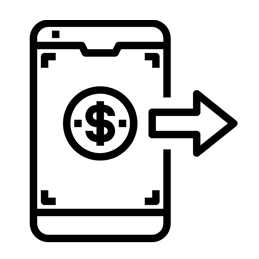Ghana's Currency
Ghana, a vibrant West African nation, is known for its rich history, diverse culture, and thriving economy. At the heart of Ghana’s financial system is its national currency, the Ghanaian Cedi (GHS). To navigate Ghana’s financial landscape effectively, it’s essential to have a solid understanding of the Ghanaian Cedi. In this guide, we’ll explore the key aspects of Ghana’s currency, including its history, denominations, exchange rates, and factors influencing its value.
-
A Brief History of the Ghanaian Cedi:
- Origins and Evolution: Learn about the historical background of the Ghanaian Cedi, from its introduction in 1965 to the currency reforms and name changes it has undergone over the years.
- Currency Symbols and Abbreviations: Understand the symbols and abbreviations used to represent the Ghanaian Cedi in both written and digital formats.
-
Denominations and Coins:
- Denominations: Explore the different banknote denominations currently in circulation, including the popular 1 Cedi, 5 Cedis, 10 Cedis, 20 Cedis, and 50 Cedis notes.
- Coins: Discover the various coins used in Ghana, such as the 1 Pesewa, 5 Pesewas, 10 Pesewas, 50 Pesewas, and 1 Cedi coins, and their corresponding values.
-
Currency Exchange:
- Exchange Rates: Understand how exchange rates work and the factors that influence the value of the Ghanaian Cedi against other major currencies.
- Currency Exchange Options: Discover the available options for exchanging foreign currencies to Ghanaian Cedis, including banks, authorized foreign exchange bureaus, and digital currency exchange platforms.
-
Managing Currency in Ghana:
- Currency Usage: Learn about the common practices and etiquette related to handling and using cash in Ghana, including tipping, bargaining, and payment methods.
- Currency Security: Find tips on how to keep your Ghanaian Cedis secure, such as being aware of counterfeit notes and utilizing safe storage options.
-
Economic Factors and the Ghanaian Cedi:
- Economic Stability: Explore the factors that contribute to the stability of the Ghanaian Cedi, including inflation rates, monetary policies, and government initiatives.
- Impact of International Trade: Understand how international trade, export-import activities, and global economic trends can influence the value of the Ghanaian Cedi.
By gaining a comprehensive understanding of the Ghanaian Cedi, you’ll be better equipped to navigate financial transactions, manage your money effectively, and make informed decisions while exploring the beautiful country of Ghana.
Related Pages:
Send Money
The future of financial transactions and many more all at your fingertips.
Data Protection
RemitM is registered with the Information Commissioner’s Office (ICO), the UK’s independent authority set up to uphold information rights in the public interest.
You can visit the ICO website to learn more about data protection or search the ICO register to view details of Remitm’s registration (Registration Number: ZA526026)
Client Funds
All clients’ funds are held in a dedicated client account separate from RemitM’s funds, in line with our regulatory framework and consistent with good practice.
We earn no interest from holding client funds, as your payments and transfers are not held by us and are remitted to recipients upon receipt.
Online Security
Your data is transmitted in a secure way and all password data is encrypted.



